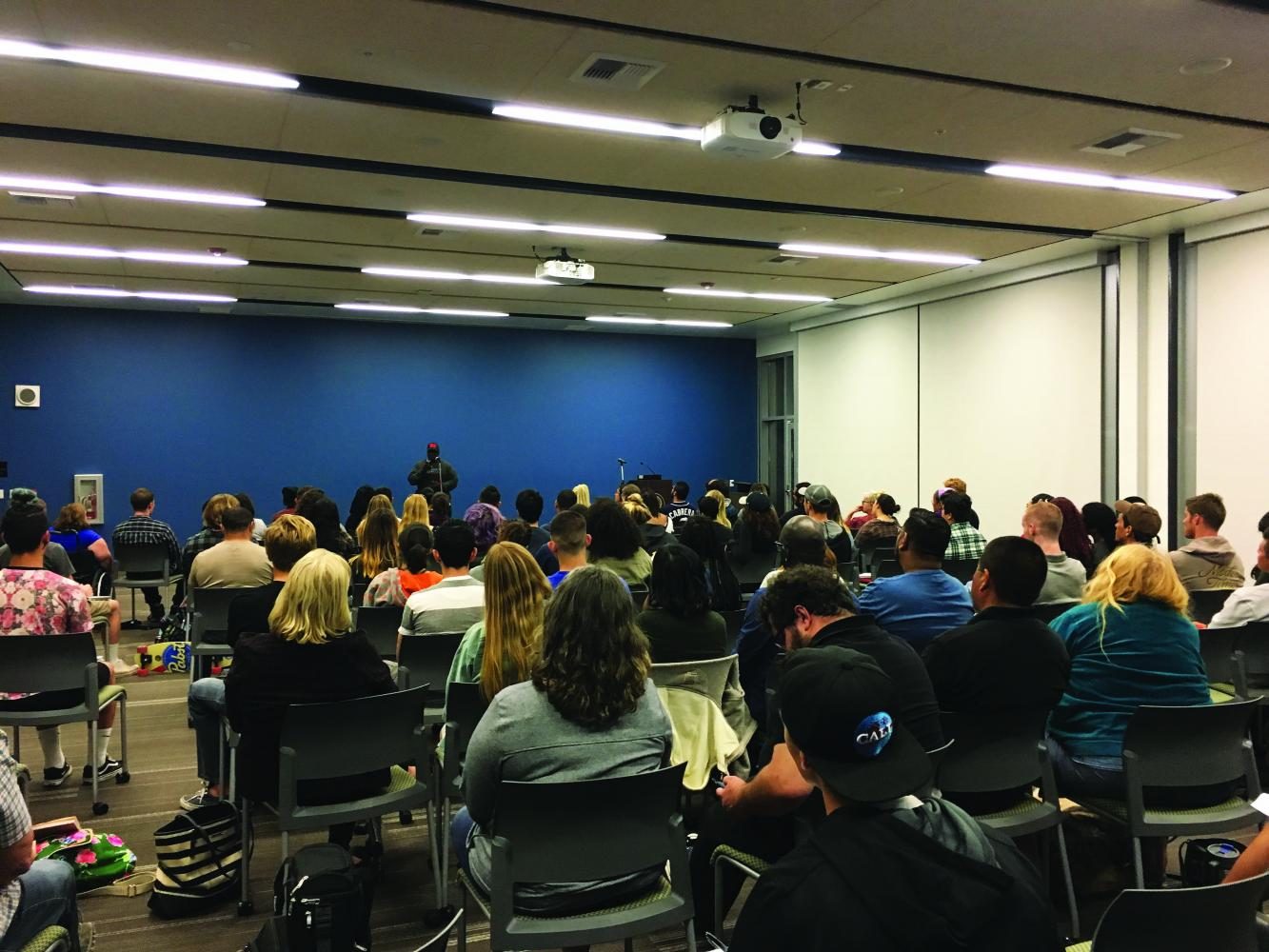Students, faculty and community members gathered on April 13 to read and perform pieces about being a “voice from the left”, a marginalized group of individuals that are neglected and misunderstood.
Being a “voice from the left” is simply being mistreated, misunderstood and misrepresented in society and in the community. Communications Professor Sakeenah Gallardo, who hosted the event, felt these students and community members needed to be properly recognized and fully understood. Gallardo said, “They are left out of conversations, they are left out of laws being changed. They are left out of laws being made. These voices need to be heard because as you see, we make up the masses.”
Students spoke about being Asian, African American, Muslim and Mexican as well as having a mental disability, having a different sexual orientation, a physical disability, homelessness and being a woman.
Communications Professor Sakeenah Gallardo, who hosted the event, felt these students and community members needed to be properly recognized and fully understood. Gallardo said, “They are left out of conversations, they are left out of laws being changed. They are left out of laws being made. These voices need to be heard because as you see, we make up the masses.”
Students who spoke were past and current students of Professor Gallardo, from her oral interpretation and advanced oral communications classes. The students were only given two weeks to prepare their speeches and performances. Some spoke of their own personal experiences and some read works of others they felt represented their experience being a voice from the left.
Jeff McKennie, one of the student speakers, spoke about being black and the expectations that accompany it. He stated “What you heard is that black is evil, ball is life, a hood rat doesn’t mean a ghetto rodent but you still wouldn’t mess with one, fathers are nonexistent in black communities and two parent households are as rare as black presidents.” McKennie also said, “There’s one thing I know, is where I’m from and what I’m capable of. I am the greatest and I know that, I am the greatest and I own that.”
Professor Gallardo also performed a segment from the book “For Colored Girls”, exhibiting a raw emotion that represented how she feels about being a voice from the left.
After the presentations professor Gallardo asked the audience to stand if they were a voice from the left or knew someone who is in a marginalized group. Professor Gallardo said, “if you are a woman, stand. If you are a person of color, stand up. If you know someone, or you have ever lived on the wrong side of the track, stand.” After a few minutes, every single person in the room was standing, applauding the speakers and each other for their courage and beautiful representation of voices from the left.
Gallardo felt this event was successful because of the audience’s reactions. She said, “We want you to feel agitated, we want you to feel that you can do something, that you are part of the change.”
Some students and community members individually stood to talk about how they felt about the performances, some mentioned that it did in fact change their perspective, being knowledgeable about the people you walk the halls with to light.


